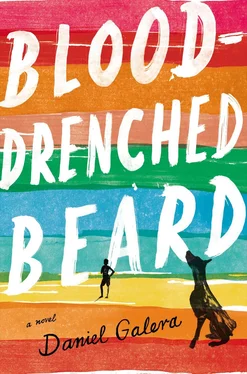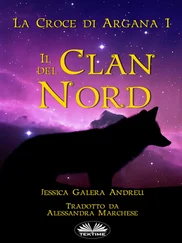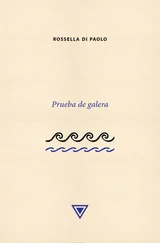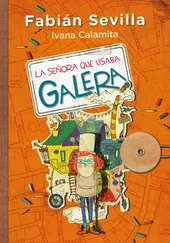Greice asks how he intends to get Beta home. He confesses that he hadn’t thought about it and calls a taxi. He leaves a check for what he still owes Greice, and she gives him a packet of dog biscuits as a present. When the taxi arrives, he taps Beta on the side and carries her into the car.
Over the next few days, he thinks for the first time about going back to Porto Alegre or moving somewhere else. He starts oversleeping. He wakes up midmorning to the sound of the returning fishing boats’ motors or the voices of the young people who come to smoke pot on the stairs outside. He spreads honey and sesame oil on a thick slice of whole-grain bread and eats, feeling the salty breeze on his face. When there’s a full moon, the weather doesn’t change until the moon goes into a new phase. Easterly winds bring bad weather. Who taught him these things? He can’t remember. He is enthused by winter for reasons he doesn’t understand. He likes heating up the soup pan every night and feeling the gust of Arctic air stinging his skin when he unzips his wetsuit after swimming. He feels comfortable in the season that other people hope will pass soon. He feels the constant presence of something undefined that has been long in the coming. Phases like this are the closest thing to unhappiness that he knows. Sometimes he wonders if he is unhappy. But if this is unhappiness, he thinks, life is incredibly merciful. He may not even have come close to the worst, but he feels prepared for it.
Viviane once told him about the Greek gods, which she had been reading up on for the master’s in literature that she was doing when they lived together. Imagine what things would be like if real life was like that. Gods announcing in advance that you’re going to win a battle, survive a shipwreck, be reunited with your family, avenge your father’s death. Or the opposite, that you’re going to be defeated or suffer terrible things for many years before you get what you want, that you’re going to lose or even die. And they go into detail, saying exactly how, when, and where, then fly off on the wind and leave the mortal there with the obligation to fulfill or carry out whatever has already been decided up on Olympus. Imagine how awful. And he had replied that he didn’t think it was a bad thing. He liked the idea of gods whispering in your ear much of what was yet to happen to you. He doesn’t actually believe in it because there is no place in his heart for gods, but he feels as if something equivalent exists in the earthly world, a natural process, some mechanism in the body or mind that senses things that we might later call fate. In his opinion, life is a little like that. We already know a lot about how things are going to turn out. For every surprise, there are dozens or hundreds of confirmations of what is more or less expected or sensed, and all this predictability tends to go unnoticed. It used to drive Viviane crazy, partly because he didn’t have her education or vocabulary and couldn’t express himself all that well, and partly because she vehemently disagreed with the idea. Then she’d go on about free choice, people’s freedom to choose, to decide what is going to happen based on what they want. She couldn’t accept that he didn’t view it as naturally as she did. Their discussions could start with a little joke or affectionate provocation and escalate into exasperating fights in which, for lack of arguments and a weak rhetorical arsenal, he had to defend his position with stubbornness or silence.
One morning in early July he takes off his socks and T-shirt, puts on a pair of board shorts, picks up Beta, and heads down the stairs to Baú Rock. The sea is choppy, but the waves are weak. The bright sunlight takes the sting out of the cold. He leaves Beta on the edge of the rock and enters the water, treading carefully over the barnacles and algae hidden under the foam. He picks up Beta again, wades farther in, and lowers her into the cold water. She stares straight ahead, perplexed by the unexpected bath. She is not in the habit of going into the water, much less the sea. The waves frighten her. She instinctively starts paddling with her front paws and a little with her back ones. He encourages her and remains up to his neck in water in solidarity, to feel as cold as she does. As soon as she finds her pace, he places a hand under her belly for support. Beta sniffs and sneezes when the water touches her muzzle. They are watched by a flock of vultures that at a given moment take to the air, flapping their magnificent wings. They are ghastly looking on the ground and beautiful flying. When the cold gets to be too much, he takes Beta firmly under his arm, wades out of the water, and carries her up the stairs to the apartment, where he wraps her in a towel. Then he gives her a warm shower and dries her patiently and carefully. He heats up a little soup in a small pot, making sure to throw in several decent chunks of meat, and serves it to her in her water bowl. He starts doing this every day, even when it is raining.
• • •
A group of tourists in yellow waterproof jackets and orange life vests, cameras dangling from their necks, is boarding a large dinghy anchored in front of one of the fishing sheds. The dinghy makes several trips, to transport all the tourists to a larger vessel that awaits them farther out. He watches the operation as he exercises Beta in the water. The vessel revs up its noisy motor and starts moving toward the sea gulls bobbing up and down near the fishing boats. The birds spread their wings and skate a little across the surface before they are fully airborne.
Later, after drying and feeding Beta, he locates the travel agency on the main street of the fishing village. Caminho do Sol. Adventure Travel, Hiking, Horseback Riding, Abseiling on Branca Rock, Whale Watching. The small office, with its floor-to-ceiling window, is behind the fishing shed where the tourists had gathered that morning. There is a red motorbike parked outside. A large right whale vertebra by the door is a draw card for tourists and a reminder that the hunting of these protected animals was once the main economic activity in the region. Vestiges of the old whaling station are everywhere, from historical buildings with mortar made with whale oil to the bones that decorate houses, gardens, and bed-and-breakfasts.
He opens the glass door and for a split second thinks that the girl sitting behind the desk staring at the computer screen with a gourd of maté frozen halfway to her mouth is Dália. Her curly hair is swept back off her face, and she is absorbed in her reading, with her head tilting forward a little and her eyes darting back and forth in horizontal sweeps. But she can’t be Dália because she is black. She is wearing a white top and a brown and orange skirt, which look more like strips of fabric somehow tied to her body than items of clothing. He says, Good afternoon, and she returns the greeting immediately but doesn’t take her eyes off the screen until she has quickly finished reading a sentence or paragraph.
Hi, how are you? Sorry, I was just finishing reading something. Have a seat. How can I help you? My name’s Jasmim. What’s yours?
Her voice is deep and viscous. She tells him that the trip costs one hundred reais and that there are still tickets available for the next morning. One of the crew members is a biologist, who will give them a lesson on right whales during the outing. Environmental protection norms require that tour boats approach the whales no more than three times in a row and stay at least a hundred yards away from the whales at all times, but the whales themselves often become curious and swim over to the boat. If the whales take the initiative, it’s okay, but we can’t guarantee that it’s going to happen. The boat will sail down the coast to Ibiraquera, where the whales are this year, passing Ferrugem, Ouvidor, Rosa Beach, the rocky coasts. It’s very beautiful. They’re predicting a sunny day without clouds tomorrow, and the boat leaves at nine in the morning. You have to be there by eight-thirty to meet the group, put on your life vest, and listen to the instructions. If there’s a free spot tomorrow, I’m going to go myself. I’ve only been once.
Читать дальше












